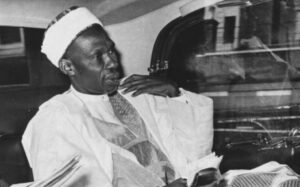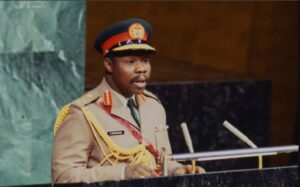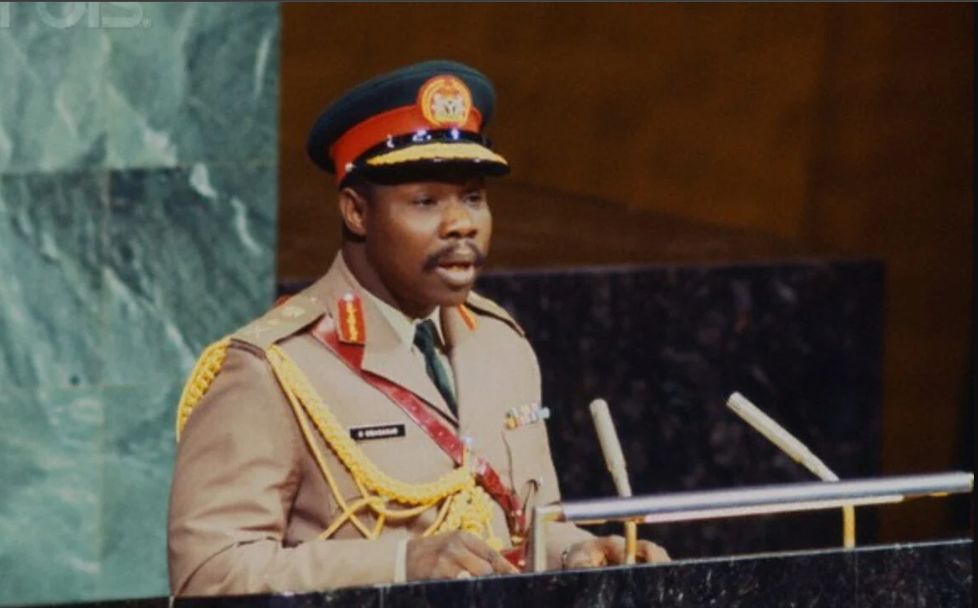This guide provides comprehensive information on the history of military rule in Nigeria. Read on and be informed. It can be recalled that October 1st, 1960, marked the year Nigeria gained her independence, but before then the British had ruled for almost sixty years. This was because of the abundance of her natural human resources.
However, the military quickly assumed control of the nation after just six years of independence, ushering in an extended period of military rule.
The military ruled Nigeria for 29 years before civil rule came into play in 1999 with the administration of Olusegun Obasanjo.
Meanwhile, Nigeria’s government, society, economy, and political environment were profoundly affected by this shift to military control, which shaped the nation’s history and left a long-lasting legacy of political instability and difficulties.
READ ALSO: Politicians Who Have Been Senate Presidents in Nigeria Till Date
The Military Regimes: 1966–1979

A major turning point in Nigerian history was the military takeovers in 1966, which paved the way for further military regimes that influenced the political and governmental climate of the nation. Below is an outline derived from the specified sources:
The first military government of Nigeria was imposed in January 1966 by a group of middle-ranking Nigerian Armed Forces officers after a coup on January 15, 1966.
This coup effectively toppled the “broad-based” national government led by the Northern People’s Congress (NPC), and it also resulted in the killings of notable political personalities such as regional premiers and Prime Minister Sir Abubakar Tafawa Balewa.
The coup was most successful in the Northern Region, where its leaders briefly took over as the government, but it was only partially successful in the Eastern, Mid-Western, and Western Regions.
The General Officer Commanding the Nigerian Army, Major-General Aguiyi-Ironsi, defeated the coup attempt in other parts of the country.
Following the coup, Major General Johnson Aguiyi-Ironsi suspended the constitution in Lagos by establishing the Supreme Military Council.
Other ethnic groups in Nigeria referred to this as an “Igbo coup,” which led to inter-ethnic violence and retaliatory occurrences.
The Nigerian Civil War was the outcome of a series of events that followed the coup. It was untrue to say that General Aguiyi-Ironsi took over the nation while under duress.
The military governments in Nigeria that followed, notably those headed by General Yakubu Gowon, General Ibrahim Babangida, and General Sani Abacha, were made possible by this period of military involvement.
Nigeria’s political course, system of government, and social dynamics were greatly affected by the military coups in 1966 and the succeeding regimes, which shaped the nation’s history for many years to come.
The impact of military rule on Nigeria’s economy and infrastructure was significant, shaping the country’s development trajectory.
READ ALSO: Who is The Senate President of Nigeria?
Some Major Challenges Under The Military Rule
1. Impact on the Economy:
Mismanagement, corruption, and inconsistent policies were among the economic issues that military administrations in Nigeria had to deal with to promote long-term, sustainable economic growth and development.
According to studies, military rule in Nigeria had a mixed impact on the country’s economy. While some policies, such as corruption and haphazard reform programs, helped the economy thrive, others hampered it.
2. Structural Development:
In the process of promoting economic growth and development, the military regimes in Nigeria raised expenditures for infrastructure, including roads, schools, hospitals, transit, and communication.
Yet, there were instances when the rate of government spending did not correspond with the amount of infrastructure growth, suggesting that it can be difficult to convert investments into noticeable infrastructure gains.
3. Overview of Economic Programs:
The goal of the economic policies put in place during military regimes was to promote economic expansion; however, there was variation in their success.
While public investment in road building and health services had short-term negative effects on economic growth, spending on agriculture was found to have a major positive influence.
The analysis concluded that corruption and uneven economic reform programs were to blame for the lack of significant differences between public infrastructure spending during the military rule (1983–1999) and the democratic government era (1999– 2018).
READ ALSO: Complete List Of Current Senators Representing Kebbi State
The Change To Democracy (1999)
After years of military control, Nigeria’s 1999 transition to civilian authority was a momentous occasion in the political history of the nation.
Based on the sources listed, the following provides an outline of the changeover and an assessment of the difficulties and achievements of the democratic era post-military rule:
A Brief Overview of The Civilian Rule Transition (1999)

Years of military control in Nigeria came to an end in 1999 with the country’s transition to civilian governance. With the first-ever transfer of power from the ruling party to the opposition party, the 1999 general elections left a historic legacy in the path of democratization.
After decades of military interventions and disturbances in Nigeria’s political landscape, the successful holding of elections leading to President Olusegun Obasanjo’s victory in 1999 marked the country’s transition to democracy and the beginning of a new era of civilian government.
References

